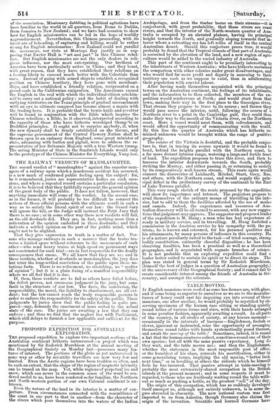That they give expression. to truth is a matter of
fact. Per- sons who manage railways in such a manner that the trains tra- verse a limited space without reference to the movements of each other—who send heavy trains at high speed on permanent ways not constructed for such trial—are in fact responsible for the deadly consequences that ensue. We all know that they are so ; and in these verdicts, whether of deodands or manslaughter, the jury does but utter the long-settled conviction of the public upon these no- torious facts. There is no refinement, no stretching, no " matter of opinion"; but it is a plain fixing of a manifest responsibility where we all feel that it is due.
If, then, these verdicts are to fail as others have failed before, the defect proves, not erroneous judgment in the jury, but some fault in the structure of our law. The facts, the conclusion, the responsibility, the moral, the liability to chastisement, are all evi- dent; but the law cannot reach the truly responsible persons in order to enforce the responsibility for the safety of the public. These judgments by juries show that the public feeling is quite pre- pared—nay, demands the enactment of laws suited to the actual state of the case. The juries are awaiting a law that they can enforce ; and thus we find that the neglect lies with Parliament, which still delays to furnish a law applicable and sufficient for the purpose.


































 Previous page
Previous page